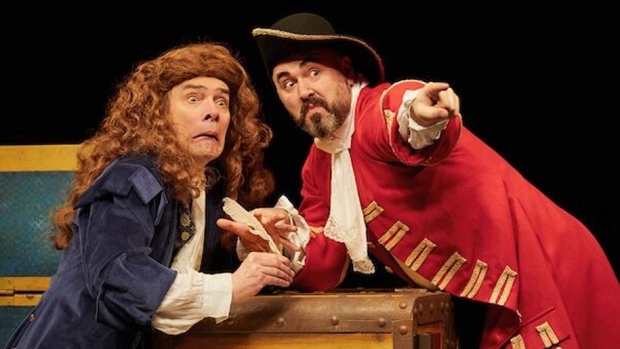Thirty years of the Birmingham Stage Company – from dressing room offices to West End success

Thirty years ago, we started an adventure. Transforming one of the dressing rooms in The Old Rep Theatre into a rudimentary office, with an old computer my administrator Karen Crouch used (while I held on to my trusty typewriter) we began to run the Birmingham Stage Company. From the beginning we’ve always had to rely 100 per cent on ticket sales for our income, and it’s fair to say I had almost no idea how to run a commercial theatre company.
The Old Rep, which seats 378, had been professionally dark for 20 years, after the Birmingham Repertory Company moved to their new, bigger theatre in Broad Street. A collection of amateur societies had moved into the Old Rep, saving the theatre from an uncertain future. In 1992 I had persuaded Birmingham City Council to let me have the slots the amateurs didn’t want, and we had been given a few weeks in the autumn and Easter. The autumn was perfect for our adult shows and our first anniversary production of Cat On A Hot Tin Roof put us on the cultural map, but it was the Christmas slot (when amateur actors would rather be at home) that became the lifeblood of the company.
We never received funding – we had to rent the venue and lighting from the council and none of our productions made money, despite often playing to 95 per cent capacity. What saved us – and indeed made us – was touring. Jan Ryan ran a tour booking company and phoned me one day to explain there was a dearth of high-quality children’s theatre touring the UK. It’s hard to appreciate now, when even the National and RSC devote so much energy to children’s theatre, but back then Jan was right. She asked if we would be willing to let her book a tour of our last Christmas show, George’s Marvellous Medicine by Roald Dahl. Twenty- three years later, the show was still touring.
Creating adaptions of brilliant children’s books quickly became the predominant source of our income. We continued to produce our shows for adults, until I had an epiphany around our 20th anniversary: why don’t we concentrate on children’s theatre and see how far we can take it? The result has been a fantastic relationship with authors such as Michael Morpurgo, Philip Pullman, Liz Pichon, David Almond and more recently David Walliams and Terry Deary, two of the most popular fiction and non-fiction children’s writers in the country.
Our productions of Horrible Histories have visited Australia, New Zealand, Hong Kong, Singapore, Dubai and Abu Dhabi. We regularly perform at Hampton Court Palace, Kensington Palace and the Tower of London. Our production of Barmy Britain became the longest running children’s show in West End history, recently completing its tenth anniversary, and this year will see Terrible Tudors at the Garrick. We also visit the smallest venues in the country to ensure everyone has access, and last year we launched Terrible Thames, a theatrical tour of the river.
Our work with David Walliams brought us into the West End with shows that were both nominated for an Olivier Award. I had been writing for Horrible Histories for several years but was extremely nervous about adapting a fictional novel, so I made a deal with David’s wonderful agent Paul Stevens, that if my adaptation was rubbish, we’d find someone else to do it. Thankfully David loved the script and Gangsta Granny has been one of our most popular shows. We’re now about to start on a new adaption of Demon Dentist, so the nerves are kicking in again.
Other highlights along the way include Skellig, which was invited to New York, Twelfth Night, which performed in the astonishing country that is Syria, Barmy Britain at the Sydney Opera House and our trip to India with George’s Marvellous Medicine. It’s wonderful that doing something you love can take you around the world.
Our future remains tied to children’s theatre, but I have just started writing my first new play for adults. Thirty years on, the adventure continues.












